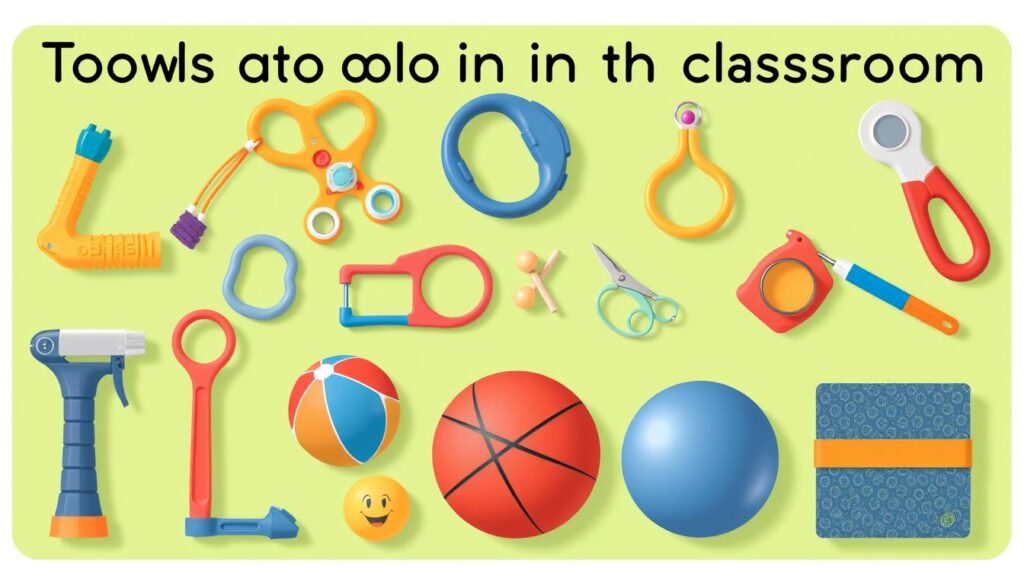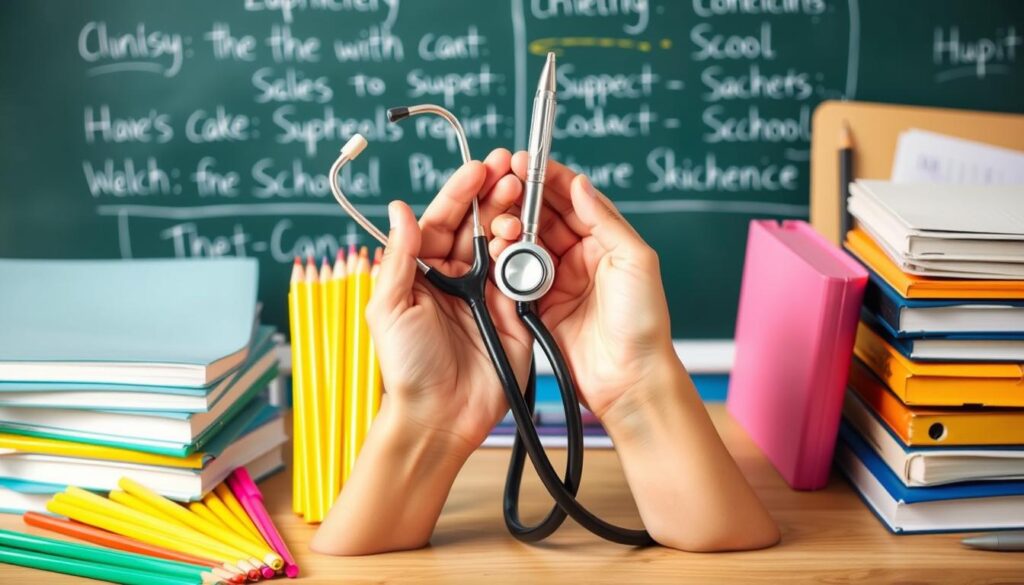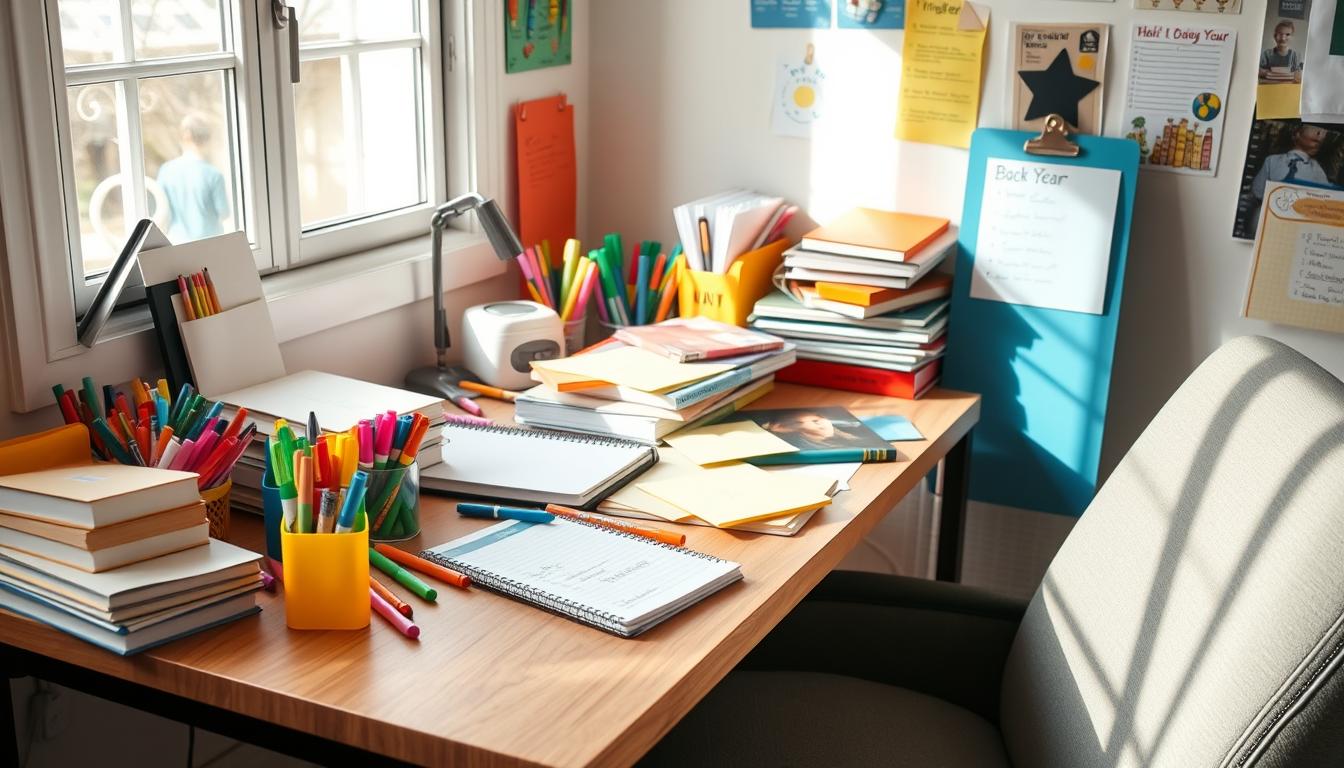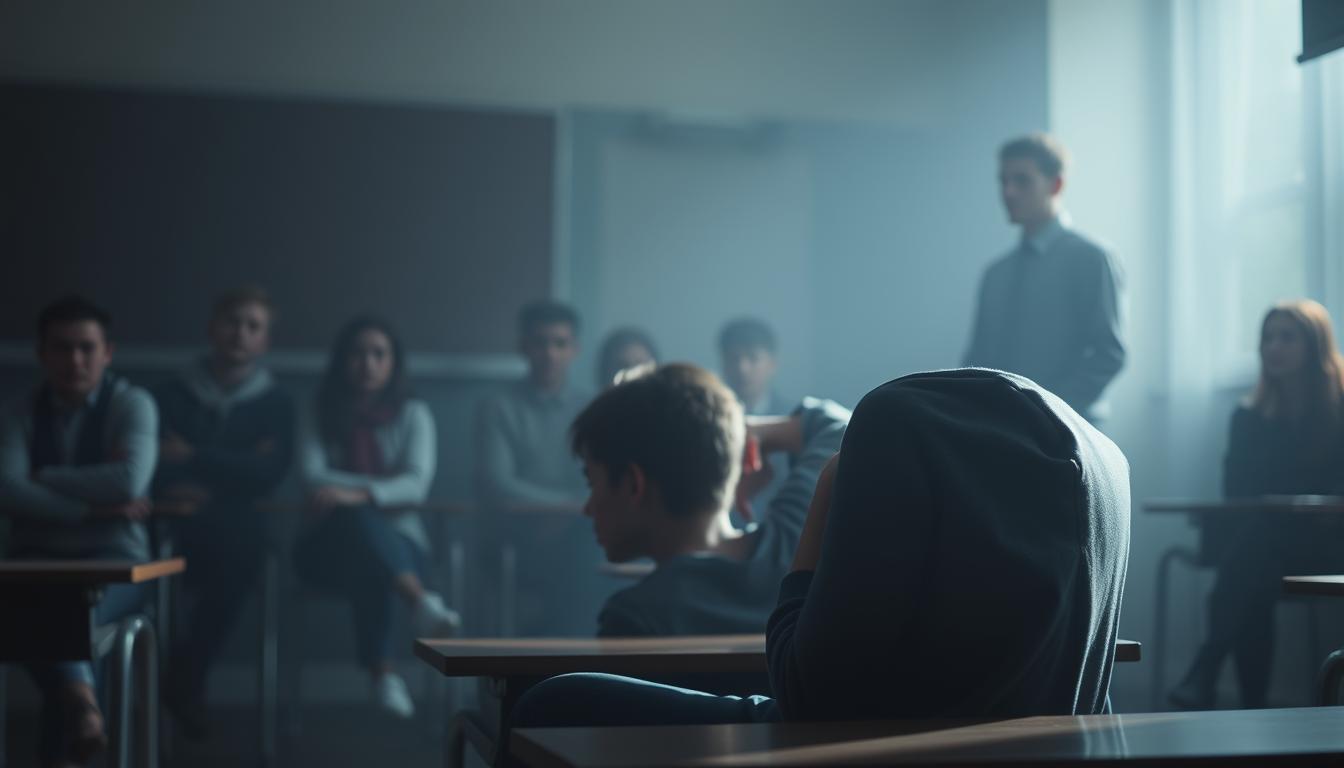As schools open for the new year, speech therapists, occupational therapists, and school psychologists are ready to help. They bring tools, activities, and strategies to support students in school.
A guide to help therapists prepare for school, students, and services.
Key Takeaways
- Discover essential speech therapy materials for articulation practice and language development
- Explore occupational therapy tools that promote classroom success, including sensory integration strategies and fine motor skill boosters
- Learn about the latest assistive technology devices and classroom accommodations to support students with learning disabilities
- Uncover behavior management techniques and social-emotional learning resources for school psychologists
- Gain insight into the crucial role of therapists and school psychologists in ensuring a smooth transition back to school
Streamlining Speech Therapy Sessions
As the new school year comes, speech-language pathologists and therapists can get ready for effective speech therapy sessions. They should stock up on key speech therapy materials. These include activities for articulation practice and visual aids that help with language development. Having the right tools makes a big difference in how much your sessions can help.
Engaging Activities for Articulation Practice
It’s important to have a wide range of articulation practice activities. This keeps students excited and motivated during speech therapy. Use fun, interactive games and exercises that focus on specific sounds, like tongue twisters and phoneme-based card games. These activities improve articulation skills and make learning fun.
Visual Aids for Language Development
Visual aids are great for helping language development in the classroom. Get different visuals, like picture cards and interactive software, to help students understand better. These tools are especially helpful for students who are behind in language skills. They make speech therapy more engaging and effective.
| Essential Speech Therapy Materials | Benefits |
|---|---|
| Articulation Practice Activities | Improve sound production, foster an enjoyable learning environment |
| Visual Aids for Language Development | Support language comprehension, build vocabulary, enhance participation |
By getting a good collection of speech therapy materials, you can make your sessions more efficient and fun for your students. Focus on materials that help with articulation and language development. You’ll see your students making progress towards their communication goals.
Occupational Therapy Tools for Classroom Success
As students get ready to go back to school, occupational therapists are key to their success. They help by giving you the right tools and resources. These tools help students do well in school and make friends. Let’s look at the important occupational therapy tools, sensory integration strategies, and fine motor skill boosters that really help.
Sensory Integration Strategies
How a student handles their senses affects their focus, learning, and class participation. Occupational therapists offer sensory integration strategies to help students manage their senses better. Tools like weighted blankets and fidget toys, along with movement breaks and sensory rooms, make learning easier.
- Incorporate sensory-rich materials like textured cushions or therapy putty
- Designate a quiet space for students to retreat and recharge
- Encourage movement-based activities, such as yoga or balance exercises
Fine Motor Skill Boosters
Good fine motor skills are key for doing well in school, like writing or using small objects. Occupational therapists use fun activities and tools to improve these skills. Tools like adaptive writing tools and interactive toys help students feel more confident and independent.
- Provide ergonomic pencil grips or specialized scissors
- Incorporate fine motor-focused games and puzzles
- Encourage activities that involve hand-eye coordination, such as threading beads or using tongs
By using these occupational therapy tools, sensory integration strategies, and fine motor skill boosters, you can help students do their best in school and life. With the right support, every child can reach their full potential.

back to school preparations for: speech and occupational therapist, school psych
As the new school year comes closer, speech therapists, occupational therapists, and school psychologists need to get ready. Making your back-to-school plans clear can make the start smoother. This lets you help students better. Let’s look at key checklists and tips to get you set for the semester.
Speech Therapist Prep
For speech therapists, having the right stuff is important. Check your tools, materials, and fun activities for speech and language. Think about new ideas like games, pictures, and touch-based learning tools.
- Replenish assessment materials and update student files
- Curate a selection of captivating articulation practice activities
- Gather visual aids like picture cards, communication boards, and language-based apps
Occupational Therapist Essentials
Occupational therapists help students do well in class. Get ready by gathering tools for sensory and fine motor skills. Make sure you have fidgets, heavy items, and things that make the classroom feel safe.
- Inventory sensory integration materials, from weighted blankets to therapeutic putty
- Assemble a collection of fine motor skill-building activities and tools
- Review student IEPs and plan for necessary classroom modifications
School Psychologist Readiness
Your job as the school psychologist is key in helping students with learning issues and special needs. Check your tests, tech, and classroom changes. Work with teachers to make sure students fit in well.
| Resource | Description |
|---|---|
| Psychoeducational Assessments | Tests to check thinking skills, school work, and how students feel socially |
| Assistive Technology | Tools and software to help learning, like reading out loud, typing, and staying organized |
| Classroom Accommodations | Changes to the classroom, like more time, fewer distractions, and different ways to learn |
By getting your materials, strategies, and tools ready, you’re setting up for a great school year. Planning ahead helps you give the best support and help to your students.

Supporting Students with Learning Disabilities
Helping students with learning disabilities do well in class is very important. We use assistive technology and classroom changes to help them. This way, they can overcome challenges and reach their full potential.
Assistive Technology Devices
Technology has changed how students with learning disabilities learn. There are many tools like text-to-speech software and apps for notes. These devices make learning easier, help them be independent, and make everyone feel included.
By giving students the right tools, they can share their thoughts, join in class, and show what they know.
Classroom Accommodations
Classroom changes are key for students with learning disabilities. They might get more time on assignments or use audiobooks. These changes make learning fit their needs.
By making the classroom work for each student, we help them succeed in school and learn important life skills.




